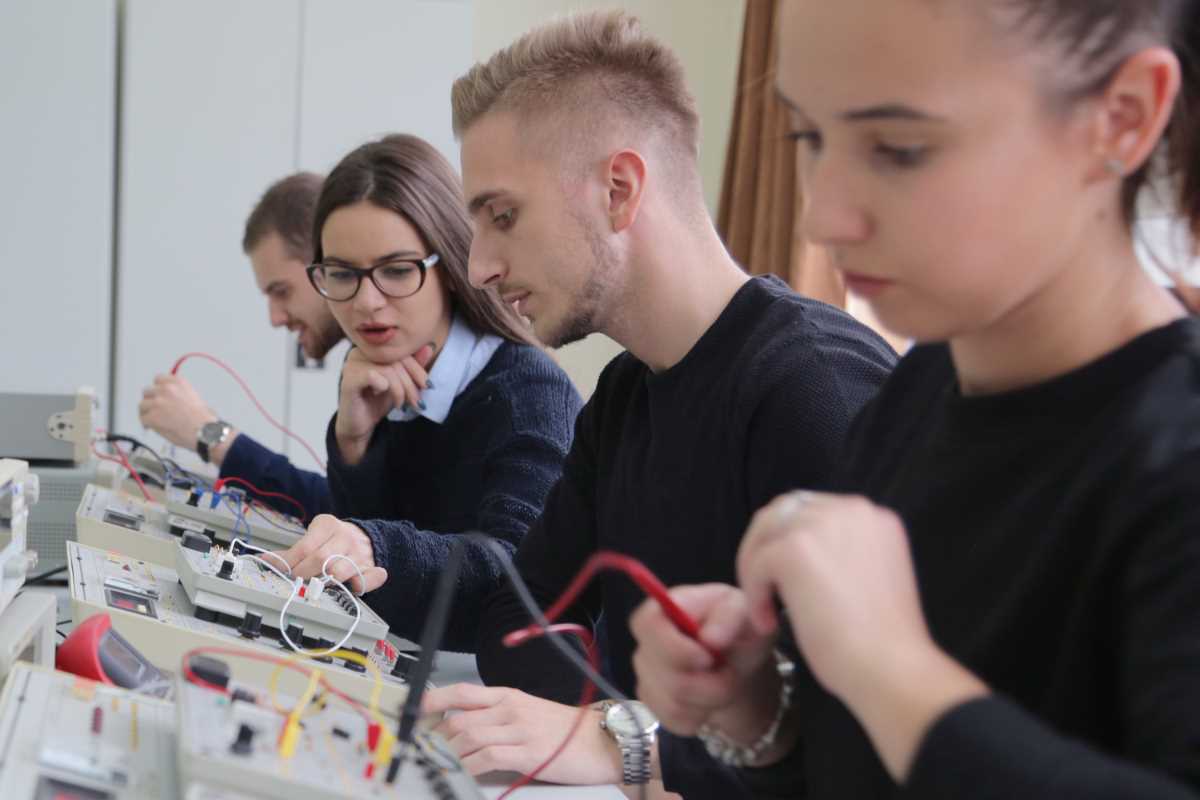Engineering is one of the most versatile and in-demand fields worldwide, with industries like technology, construction, manufacturing, and renewable energy seeking skilled professionals. But how can engineering students bridge the gap between academic theories and real-world applications to stand out in a competitive market? Cooperative education (co-op) programs have emerged as a powerful solution, helping students gain hands-on experience while still in school. By merging classroom learning with practical work experiences, co-ops are transforming how students prepare for engineering careers and ensuring their success in high-demand roles.
What Are Co-op Programs?
A co-op program is an educational model that combines traditional academic coursework with periods of paid, full-time work in a field related to a student’s area of study. Unlike standard internships, which often last for a few months, co-op programs are typically integrated into a student’s academic schedule and can span multiple semesters. During a co-op, students alternate between studying on campus and working for a company, giving them ample time to apply classroom knowledge to practical industry challenges.
For example, a mechanical engineering student might spend a semester taking courses on fluid dynamics and thermal systems, then join an automotive company to work on engine design or production enhancements during their co-op term. This alternating structure allows students to continuously blend theoretical learning with real-world problem-solving, amplifying the depth of their education.
Real-World Experience: The Core of a Co-op
One of the standout benefits of co-op programs is the opportunity to gain meaningful, hands-on experience. While academic courses are critical for laying the technical foundation, industries often seek candidates who can demonstrate the ability to apply those skills in professional environments. Co-ops offer just that.
When working on actual projects, students tackle challenges such as designing prototypes, managing budgets, or solving technical issues in a team setting. Not only does this exposure refine technical abilities like coding, circuit design, or materials testing, but it also fosters soft skills such as teamwork, project management, and adaptability—attributes that simply cannot be taught in a lecture hall alone.
For example, civil engineering students in co-op roles might work on-site at large construction projects, learning not only about materials and structures but also how to collaborate with architects, contractors, and municipal agencies. Such experiences teach practical lessons that make them more adept at problem-solving and significantly boost their career readiness.
Networking Opportunities That Lay the Groundwork for Future Careers
Beyond technical experience, co-op programs excel at helping students establish crucial professional connections. By working alongside engineers, managers, and other professionals, students build relationships that can lead to mentorships or future job offers.
Industry professionals often become invaluable sources of advice, introducing students to new trends, tools, and areas of focus. Additionally, these connections can provide strong references for future job applications, significantly increasing candidates' employability in competitive fields.
Certain co-op programs even offer formal networking events or alumni mixers, allowing students to meet high-level decision-makers in their chosen industries. For example, a software engineering student may network with members of a firm’s development team, positioning themselves for full-time roles post-graduation.
Since many companies use co-op programs as a talent pipeline, students who perform well during their co-op placements often receive job offers before they even finish their degrees. This early entry into secure roles gives them a head start in establishing their careers.
Bridging the Gap Between Classroom and Industry
Perhaps the most significant value of co-op programs is their ability to align academic curricula with real-world industry needs. Colleges and universities work closely with participating companies to ensure coursework complements the technical demands of the workplace.
This alignment is particularly critical in fields such as software, biomedical, and renewable energy engineering, where rapidly evolving technologies demand that graduates stay current. Students who complete co-op rotations come back to campus with fresh insights into industry practices, which they then apply to subsequent coursework.
For instance, after working with an aerospace manufacturer, an aeronautical engineering student might better understand computational fluid dynamics' relevance and approach their studies with renewed focus. This cycle of learning and practice gives co-op students a competitive edge over peers without such exposure.
Examples of Successful Co-op Programs
Certain higher education institutions are well-known for their robust co-op partnerships. Schools like Northeastern University and the University of Cincinnati offer renowned engineering co-op programs where students work with industry leaders such as Tesla, Boeing, Intel, and NASA.
At Northeastern, co-op students have worked on cutting-edge projects, including developing advanced robotics systems and creating sustainable energy solutions. Similarly, the University of Cincinnati’s program boasts partnerships with over 1,500 employers, offering placements in fields ranging from materials science to structural engineering. Students often report that these experiences were pivotal in shaping their career paths, helping them secure lucrative and fulfilling roles immediately after graduation.
Maximizing the Co-op Experience
To fully leverage the benefits of a co-op program and secure high-demand engineering roles, students should take proactive steps throughout the process.
- Research the Right Opportunities: Select co-op placements that align closely with your career goals. If you're interested in robotics, look for employers specializing in automation or AI applications.
- Demonstrate Initiative: Treat a co-op role like a full-time job. Be proactive in asking for challenging assignments, volunteering to assist on key projects, and requesting feedback to improve your skills.
- Build Your Network: Use your time at the company to establish strong professional connections. Don’t hesitate to ask for advice or career guidance from colleagues and supervisors.
- Reflect on Your Experience: After each co-op term, assess what you learned and how it contributes to your long-term career goals. Use these insights to refine your academic focus or explore additional specializations.
Co-op programs are revolutionizing how engineering students prepare for their careers, providing the perfect mix of academic learning, hands-on experience, and professional networking. By participating in these programs, students are not only better equipped to meet industry demands but also positioned to excel in high-demand roles across diverse fields.
For engineering students eager to stand out and make a real impact, enrolling in a co-op program is one of the smartest moves they can make. With the right approach and dedication, a co-op experience can be the bridge from the classroom to a thriving career.







